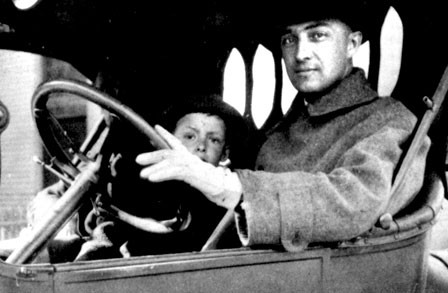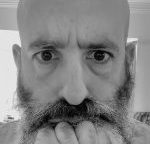I just popped downstairs – my phone was ringing (Acker Bilk, 1030, Saturday evening).
It was the ward.
One of my patients had unexpectedly become unwell.
I felt touched and relieved that the on-call doctor felt comfortable ringing me, out of hours.
This is one of the hardest things to square-away when working as a doctor – when do your duties begin and end. Perhaps I would have felt differently if it had been three in the morning; I doubt-it.
Over the past decade, partially through compliance with European Working Time Directives (‘EWTD’) and more recently because of the mismanagement of medicine by the government, doctors in training experience a very different world to the one I occupied when younger; even that, however, was different to the work patterns that first introduced me to the life of a physician; Doctor in the House – on-site living, on-call every second day, meals in quarters, deference, cap-doffing and all that.
Yes – relieved that the 120 hour weeks are in the past, but the model of medicine, the image of doctor holding hand, expressing empathy and understanding has also shifted – moved so much that we not only have to teach the science of medicine, but also focus on the caring – the person-centredness.
When William Carlos Williams trundled in his Model-T across the New Jersey night to deliver a baby, it was unlikely that he needed a guide on holistic practice.
And today; where does it end?
Today, doctors, like others are constrained by shift patterns; their relationship with individuals fragmented and disjoined.
‘Mary fell last night,’ you are informed, and, first thought, ‘Who is Mary?’
We have invented strategies to get to know our patients better – This is Me – the form that translates who a person is into a section of the medical notes;
‘Shift-work’ – does it work for doctors?
Yes – to a greater or lesser extent it is the only way to provide care within the complexities of the 21st Century.
Patients are no longer OK with receiving the wrong drug and the wrong dose from a bleary-eyed medic who hasn’t slept in 48 hours; just like our cars, computers and washing machines – we seek reliability and consistency, not something that is at risk of breaking-down on the hard-shoulder.
And the phone call.
I talked with the doctor, who despite his youth, I know will evolve into a fantastic guy – a clinician to reckon with, regardless of where he heads in his career.
And, as I sit here, my patients sleep – well, at least some; others not. They are getting by, through a complicated on-call, rota, shift-based, system of multidisciplinary working.
And my job ends with the end of the working day, and I move on, and perhaps prepare dinner, watch TV or feed the fish, and life becomes fragmented and this, I suspect is a loss, a diminution of the meaning of doctor.
It is in part this fragmentation which allows us to keep going, to work for longer than those guys 50 or 100 years ago.
And with this exchange, is clearly a loss.
A loss that I have yet to understand.
A loss that leaves me thinking, what it is to be a doctor.
Or maybe, I am just tired.


